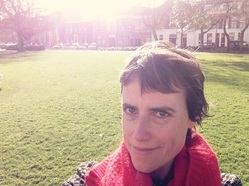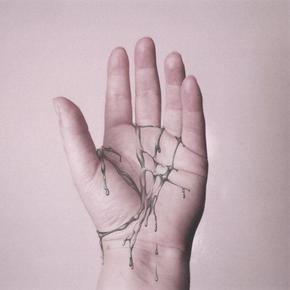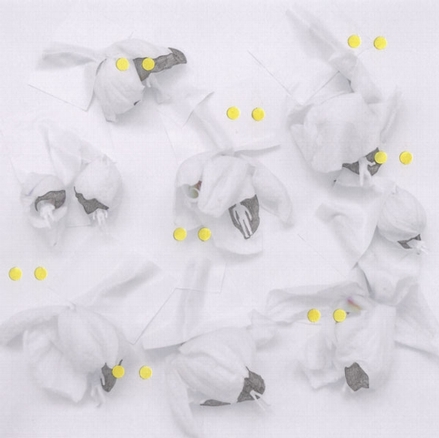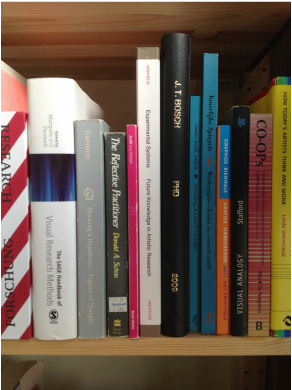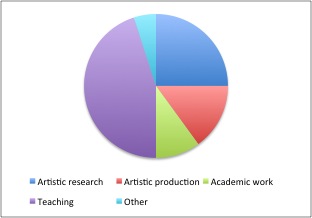
#2 HAAGS BAKKIE? - Ambitions, Effects
Can you elaborate on the role artistic research plays in you practice today?
Artistic research has become fully embedded in my approach, it has internalized. To a degree it had always been there, I am a person drawn to analytics, yet the mechanisms to work with this fully seemed to be off or incomplete. There was a problem with choice-making that I couldn’t resolve without really investigating what was going on in this intricate and personal field of artistic decisions and motives beyond my own persona. The PhD project provided so much focus through the hardship of it. It is difficult to say what my practice is now, is it still art practice or is it more hybrid than that. I think the latter, because it requires sidestepping into other fields of enquiry. In any case artistic research runs throughout my practice, my teaching, all my activities really. It has created more unity in my work and then gradually alowed me to again branch out, entertain new ideas, go on previously unanticipated quests, collaborate more. I feel a stronger sense of direction, of purpose lately and it somehow provides freedom to be less directive if that makes sense. I still want too many things out of my working life, but they have become part of the same spectrum now, eminent parts of the engine that runs me which definitely gained some additional horse power.
What role do you feel it should play in academia?
In my teaching I am particularly interested in altering generative and analytical thinking methods to help students sidestep their ordinary routines and look at what happens in their practice with new eyes. This is one of the things artistic research can do in art schools or any other school for that matter. I don’t particularly feel you ought to have a PhD to be a good teacher. Of research methods maybe. But I do feel good students – the lifelong kind - make good teachers. By which I mean that it isn’t enough to do your work and teach, everything needs to be questioned, challenged, all the time. An ability to be critical, analytical, to underpin your claims can be vital to your credibility and foremost to make your students engage critically and analytically with their work. None of that ‘hey look at me, the world famous artist who has the recipe – routine’. No egos, no jealousy. Everyone has their own challenges, stuff they can work with, learn from, grow beyond. What makes you a successful artist doesn’t make you a successful teacher; it doesn’t make your right either. You need to embrace doubt, failure, so that your students can be fearless no matter what obstacles they need to overcome. PhD processes do a particularly good job at teaching you that, but there are more ways to learn in life and PhD’s are certainly not for everyone.
If your entire work week would be 100%, what would your estemated percentual time devision be amongst:
Artistic research (reading, experimenting, attending conferences, visiting exhibitions etc.)
Artistic production (executing work, exhibitions etc.)
Academic work (publications, presentations etc.)
Teaching (curriculum development, meetings, marking etc.) Other work
Are you content with this devision?
I am generally not content about this devision. I would like to have more time for any one of these activities. Importantly however, I would not want to discontinue any of them and feel grateful I can dedicate time to all of them. Teaching has taken over a bit though.
Which are your long term ambitions?
More integral academic artistic projects both within academia and beyond, a lectorate or professorship, being part of knowledge circles and interesting collaborations. Expand our research community.
#1: 10 CITIES - Locality
The first practice based PhD in the Netherlands started around 2004, just before I embarked on my PhD in England. The newly established ArtScience department, a collaboration between the University of Leiden and the Art Schools of The Hague and Amsterdam started out with music (composition) based PhD's, and thereafter also PhD's by visual artists. Artistic Research is therefore a relatively young field in the Netherlands in comparison to England and other countries.
There is also a distinction between Practice Based and Practice-led, roughly speaking is the first variety similar to a Professional Doctorate. The ambition seems to be to communicate knowledge through art and teaching within the art community rather than to the wider theoretical field. Although I am still not certain of this, as the questions I have raised about the ambitions with artistic PhD's have been answered very differently by different people involved in this new field. In the Netherlands, there is still a distinction between Academic and Higher Professional Education, where Dutch art schools are traditionally based. The consequence of this, is that many professional artists, teaching in art schools, don't have an academic background and haven't got that type of research experience. Therefore, research training and PhD guidance is delivered by teams of professional artists and f.i. art historians. The problem is, that neither have an overlapping experience wherein artistic research experiments can be appropriated successfully into words. The theoreticians often lack practical knowledge and vice-versa.
Going back to the Netherlands, I was therefore very keen to contribute my new experiences and skills as an artist/researcher and expected to have no trouble finding a suitable place in the art school environment. This has however been more of a struggle than I anticipated. In part because in the meantime, the economic crisis and following government cuts have had a strong impact on the cultural world in my home country. There is a distinct decrease in prospect art students and schools are not keen to take on more permanent staff. I have therefore been able to teach as a guest teacher and on a contract at several art schools, but not been able to work there for longer than three years (the maximum length of a temporary contract). The hours that were assigned to me were temporary hours due to staff on long term sick leave. It has been a positive experience to work for different institutes and teach different programs, yet it doesn't allow one to grow into a more senior role with a stronger influence on curriculum development of research skills and to initiate research projects as a 'Lector', which would be amongst my ambitions.
Nevertheless, I have been able to do some interesting and fitting work to date. This has allowed me to further develop my teaching skills and work on research training programs within my own teaching.
In retrospect having a PhD has certainly helped finding work, but having a professional network locally has been key. Vacancies I have applied for at schools where I had no connections have failed without exception. In that regard, doing a PhD abroad means it may take some time getting reestablished in your home country if you decide to return and the contacts obtained abroad are not necessarily of much value locally in terms of job prospects.
About Dr. Jolande Bosch
Personal website
Can you elaborate on the role artistic research plays in you practice today?
Artistic research has become fully embedded in my approach, it has internalized. To a degree it had always been there, I am a person drawn to analytics, yet the mechanisms to work with this fully seemed to be off or incomplete. There was a problem with choice-making that I couldn’t resolve without really investigating what was going on in this intricate and personal field of artistic decisions and motives beyond my own persona. The PhD project provided so much focus through the hardship of it. It is difficult to say what my practice is now, is it still art practice or is it more hybrid than that. I think the latter, because it requires sidestepping into other fields of enquiry. In any case artistic research runs throughout my practice, my teaching, all my activities really. It has created more unity in my work and then gradually alowed me to again branch out, entertain new ideas, go on previously unanticipated quests, collaborate more. I feel a stronger sense of direction, of purpose lately and it somehow provides freedom to be less directive if that makes sense. I still want too many things out of my working life, but they have become part of the same spectrum now, eminent parts of the engine that runs me which definitely gained some additional horse power.
What role do you feel it should play in academia?
In my teaching I am particularly interested in altering generative and analytical thinking methods to help students sidestep their ordinary routines and look at what happens in their practice with new eyes. This is one of the things artistic research can do in art schools or any other school for that matter. I don’t particularly feel you ought to have a PhD to be a good teacher. Of research methods maybe. But I do feel good students – the lifelong kind - make good teachers. By which I mean that it isn’t enough to do your work and teach, everything needs to be questioned, challenged, all the time. An ability to be critical, analytical, to underpin your claims can be vital to your credibility and foremost to make your students engage critically and analytically with their work. None of that ‘hey look at me, the world famous artist who has the recipe – routine’. No egos, no jealousy. Everyone has their own challenges, stuff they can work with, learn from, grow beyond. What makes you a successful artist doesn’t make you a successful teacher; it doesn’t make your right either. You need to embrace doubt, failure, so that your students can be fearless no matter what obstacles they need to overcome. PhD processes do a particularly good job at teaching you that, but there are more ways to learn in life and PhD’s are certainly not for everyone.
If your entire work week would be 100%, what would your estemated percentual time devision be amongst:
Artistic research (reading, experimenting, attending conferences, visiting exhibitions etc.)
Artistic production (executing work, exhibitions etc.)
Academic work (publications, presentations etc.)
Teaching (curriculum development, meetings, marking etc.) Other work
Are you content with this devision?
I am generally not content about this devision. I would like to have more time for any one of these activities. Importantly however, I would not want to discontinue any of them and feel grateful I can dedicate time to all of them. Teaching has taken over a bit though.
Which are your long term ambitions?
More integral academic artistic projects both within academia and beyond, a lectorate or professorship, being part of knowledge circles and interesting collaborations. Expand our research community.
#1: 10 CITIES - Locality
The first practice based PhD in the Netherlands started around 2004, just before I embarked on my PhD in England. The newly established ArtScience department, a collaboration between the University of Leiden and the Art Schools of The Hague and Amsterdam started out with music (composition) based PhD's, and thereafter also PhD's by visual artists. Artistic Research is therefore a relatively young field in the Netherlands in comparison to England and other countries.
There is also a distinction between Practice Based and Practice-led, roughly speaking is the first variety similar to a Professional Doctorate. The ambition seems to be to communicate knowledge through art and teaching within the art community rather than to the wider theoretical field. Although I am still not certain of this, as the questions I have raised about the ambitions with artistic PhD's have been answered very differently by different people involved in this new field. In the Netherlands, there is still a distinction between Academic and Higher Professional Education, where Dutch art schools are traditionally based. The consequence of this, is that many professional artists, teaching in art schools, don't have an academic background and haven't got that type of research experience. Therefore, research training and PhD guidance is delivered by teams of professional artists and f.i. art historians. The problem is, that neither have an overlapping experience wherein artistic research experiments can be appropriated successfully into words. The theoreticians often lack practical knowledge and vice-versa.
Going back to the Netherlands, I was therefore very keen to contribute my new experiences and skills as an artist/researcher and expected to have no trouble finding a suitable place in the art school environment. This has however been more of a struggle than I anticipated. In part because in the meantime, the economic crisis and following government cuts have had a strong impact on the cultural world in my home country. There is a distinct decrease in prospect art students and schools are not keen to take on more permanent staff. I have therefore been able to teach as a guest teacher and on a contract at several art schools, but not been able to work there for longer than three years (the maximum length of a temporary contract). The hours that were assigned to me were temporary hours due to staff on long term sick leave. It has been a positive experience to work for different institutes and teach different programs, yet it doesn't allow one to grow into a more senior role with a stronger influence on curriculum development of research skills and to initiate research projects as a 'Lector', which would be amongst my ambitions.
Nevertheless, I have been able to do some interesting and fitting work to date. This has allowed me to further develop my teaching skills and work on research training programs within my own teaching.
In retrospect having a PhD has certainly helped finding work, but having a professional network locally has been key. Vacancies I have applied for at schools where I had no connections have failed without exception. In that regard, doing a PhD abroad means it may take some time getting reestablished in your home country if you decide to return and the contacts obtained abroad are not necessarily of much value locally in terms of job prospects.
About Dr. Jolande Bosch
Personal website
